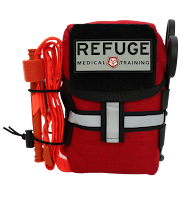By Cade Shadowlight
In a world where accidents remain the #1 killer of children under 15, cancer is a close second. The good news? When caught early, more than 80% of kids now beat it. The bad news? Early detection is hard, especially with toddlers and young children who can’t clearly tell you what hurts or feels wrong.
In a world where accidents remain the #1 killer of children under 15, cancer is a close second. The good news? When caught early, more than 80% of kids now beat it. The bad news? Early detection is hard, especially with toddlers and young children who can’t clearly tell you what hurts or feels wrong.
Regular well-child checkups are non-negotiable. Yes, they cost time and money, and nobody enjoys them, but skipping them can be fatal. Doctors may catch things parents miss.
Beyond checkups, you need to know the red flags. These symptoms can have innocent causes, but if they’re persistent, worsening, or have no obvious explanation, act fast.
Major Warning Signs
Get medical help immediately if your child has:
- Persistent or unexplained fever
- Extreme fatigue, paleness, or weakness
- Lumps or swelling anywhere (especially neck, armpit, groin, abdomen)
- Easy bruising or bleeding (nosebleeds, gums, unusual bruises)
- Frequent or severe headaches, dizziness, or double vision
- Ongoing bone/joint pain or limping
- Unexplained weight loss or loss of appetite
- Persistent nausea, vomiting, or stomach pain
- Sudden changes in balance, walking, or coordination (stumbling, falling)
- Unusual irritability, excessive crying, personality changes, or regression (bedwetting after being trained)
- Excessive sleeping or inability to sleep
These aren’t “normal childhood things” when they keep happening without a clear reason (cold, growth spurt, etc.).
What to Expect at the Doctor
The doctor will take a full history, do a thorough exam, and likely order blood work, X-rays, ultrasound, or other imaging. If a lump or tumor is found, a biopsy (removing a small piece for lab testing) may be needed.
Speed matters. Delaying even a couple of weeks can change outcomes dramatically.Early detection isn’t just “helpful.” In childhood cancer, it’s often the difference between life and death.
Trust your gut. You know your child better than anyone. If something feels seriously off and keeps feeling off, push for answers. Demand tests. You’re not being paranoid, you’re being a parent.
For more in-depth information and current treatment statistics, visit their sites directly.
Prepared parents protect their kids. Know the signs. Act fast.
*** Liked this article? Never miss future survival and preparedness content by following Dystopian Survival now. Just click here to sign up for free.***
_____________________
Refuge Medical & Refuge Training (Affiliate link) High Quality, American Made, First Aid Kits and Medical Supplies! (Training, too!). A 10% Discount Code will automatically be applied at checkout using this link.


No comments:
Post a Comment
Comments are posted without moderation. Use caution when following links. Please keep discussions civil and on-topic.